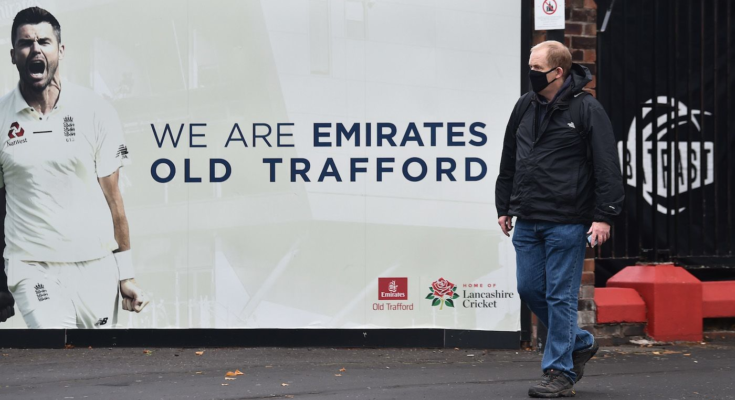ICC could adjudicate; if Test not rescheduled, ECB wants status to be “forfeited” to square the series and claim insurance payouts
At present, as the ECB and BCCI sift through the fallout of the Test that never was, we know neither the result of the match or the series. We don’t know if the series will be finished in the 2022 English season, or if a one-off Test will be scheduled to mitigate for the substantial losses incurred by this one. We do not even know, for sure, what the insurance implications are.
The basic facts are these: if the Test is deemed, by the ICC, to have been called off due to Covid, the game will be treated as abandoned. As a consequence, the series will finish (at least for now) as a 2-1 victory to India. This scenario would also mean the ECB receiving no insurance payout as it is not covered for this eventuality.
But if the ICC decide India have effectively forfeited the match, the game will be awarded to England and the result of the series will be deemed to be 2-2. This scenario would also enable the ECB to make a claim for an insurance payout.
“We have to just take a breath and ask the ICC to formally adjudicate on the result of this,” Tom Harrison, the ECB chief executive, said. “The BCCI have offered to reschedule the match, which is good news. But whether that is part of this series, a fresh one-match series or the first match of another series, I don’t know yet.
“These are the things that we need to take some time over. I know that fans will be anxious to know. Players are, too. But we do need to take some time in these situations.”
Though both boards’ public statements sounded conciliatory, ESPNcricinfo has learned that, behind-the-scenes, the action has been every bit as competitive as anything we have seen on the pitch. The ECB has asserted that, if there is no rearranged date for the game, then the Test should be deemed to have been forfeited by India. That would not only square the series at 2-2, but would allow the ECB to claim insurance payouts on lost revenues, which could well exceed GBP 30 million (USD 41.6 million approx.).
The ECB is not covered for Covid-impacted cancellation by insurance. While Harrison did originally seem to imply it was in an interview on Sky Sports, he later clarified to confirm it was not. Instead, he confirmed that all ticket-holders will be refunded by the ECB. Crucially, he argues that the match was not called-off due to a Covid outbreak, but due to fears of a Covid outbreak.
“There is a tangible difference between those things [forfeit or cancellation], Harrison said. “This is not a Covid cancellation. This is a match cancelled because of serious concerns over the mental health and well-being of one of the teams. There is a difference. But it doesn’t make a difference in respect of a ticket buyers; they will be paid back in full. It makes a difference in terms of the ECB balance sheet.
“You can’t be flippant about issues of mental health, and this is what this is about. India have been wonderful tourists, but they have been here for a long time. Playing at this level, week after week, is difficult. Even if we feel we are emerging from the pandemic, life is different for the players. When Covid creeps into an environment, it can accelerate very quickly.”
“Let me be super clear,” Harrison said. “I don’t think the IPL has anything to do with this. This is not a situation which has been created by the rescheduled IPL. I fundamentally do not believe that for a second.”
With the game currently deemed “cancelled” – not “forfeited” – the onus will be on the ECB to have that decision overthrown. If it is to do that, it will have to contest it under the ICC’s Dispute Resolution Committee, which is currently chaired by Michael Beloff QC. A private pay-off before reaching that stage is also a possibility, though the offer of another Test next year may suffice.
If the matter does come before such a committee, the whole affair could become quite messy. The ECB is likely to claim the India team breached protocols by attending Shastri’s book launch – he is being referred to as “patient zero” within the England camp – and will maintain the game was called off because senior India players simply refused to participate. The details of what constitutes a breach will be important, given that Harrison said teams were no longer in biosecure bubbles.
“We’re in managed, living standards, which is a much better and more healthy place for players to be in the long term,” he said. “But it does carry with it some risks. Let’s be clear: we were never trying to sell this as a Covid-free environment, we were trying to sell this as a Covid-managed environment for our Indian friends who have been in bubbles for a long time as well as the England players, this was a really important part of them being here for a three-month period over the course of this summer.”
George Dobell is a senior correspondent at ESPNcricinfo


